-
First meeting in presence
Topics like digitalization
First meeting after the corona-break with representatives from all SHK-Members. Topics like digitalization or personell developement were discussed.
-

Paracelsus Medizinische Privatuniversität with Rektor Wolfgang Sperl now Chairman
Change
On April 14th Paracelsus Medizinische Privatuniversität took over the Chair vor Salzburger Hochschulkonferenz (SHK).
-

-

Studium & Lehre
Since the transfer to the European study system, an academic career begins with a bachelor degree, which can be followed by a specialised master degree. Other types of study are diploma courses and teacher training degrees. These degree courses qualify students to study a doctoral qualification in the respective area of scientific expertise. As a place of higher education, Salzburg offers courses in the study areas of catholic theology, social and cultural sciences, natural sciences, technology, economics, medicine and numerous artistic subjects.
Higher Education Courses Search
The Salzburg Higher Education Conference
The Salzburg Higher Education Conference (SHK) is a cooperative initiative between six higher education institutions in Salzburg.
With a total of 23,000 students, 3,700 employees, an annual budget of over 220 million euros and activities all over the world, the six higher education institutions in Salzburg are of great importance to the region’s economic and social development. At the centre of collaboration projects between the higher education institutions are nine research and teaching initiatives as well as the better use of joint resources. The Salzburg Higher Education Conference puts forward common ideas which strengthen the position of each institution. A common ground in central questions should be found which can be promoted to political decision-makers.
The Salzburg Higher Education Conference strives to achieve the following goals:
- improved communication and information about higher education
- joint external presentation of the SHK
- strategic regional collaboration and further development of higher education possibilities in Salzburg
- handling of common themes and cooperation projects
- agreed approach regarding the overall student target group
- information and cooperation regarding study programmes, infrastructure and investments
- improved general conditions for the economic and tertiary educational sector on a regional, national and international level
- increased international visibility
- quality assurance – through its objectives, the cooperation group of the Salzburg Higher Education Conference offers qualitative additional value to the training sites and scientific facilities in Salzburg, and in this way the Salzburg Higher Education Conference contributes to quality assurance.
Members & Higher Education Facilities
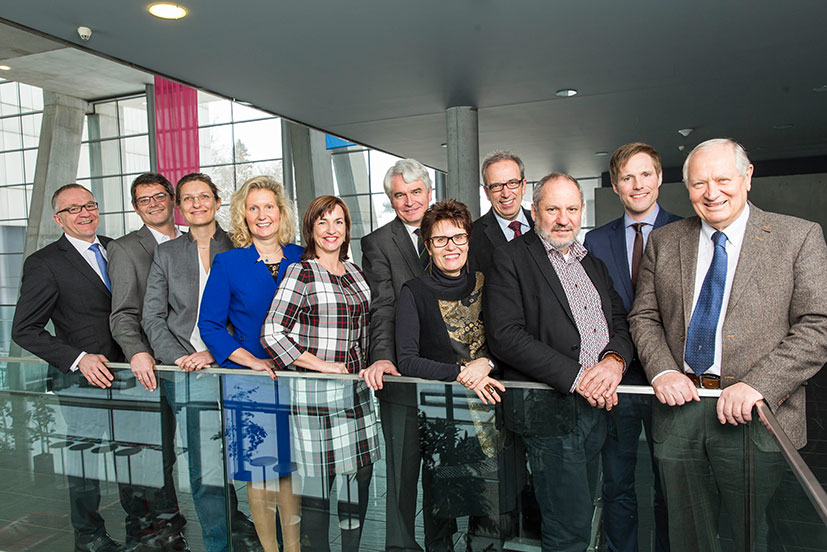
Members of the Salzburg Higher Education Conference
Photo from left to right:
Director Mag. Raimund Ribitsch (FHS)
Vice Rector FH-Prof. DI Dr. Hilmar Linder (FHS)
Vice Rector Prim. Univ.-Prof.in Dr.in Eva Rhode (PMU)
Rector Ao. Univ.-Prof.in Dr.in Kerstin Fink (FHS)
Director Mag.a Dr.in Doris Walter (FHS)
Rector Univ.-Prof. Dr. Heinrich Schmidinger (PLUS)
Rector Mag.a Dr.in Elfriede Windischbauer (PH)
Chancellor Dr. Michael Nake (PMU)
Rector Prof. Dr. phil. Siegfried Mauser (MOZ)
Rector Univ.-Prof. Dr. Achim Hecker (Seeburg)
Rector Prim. Univ.-Prof. Dr. Herbert Resch (PMU)
Higher Education Facilities
- Paris Lodron University Salzburg (PLUS)
- Paracelsus Medical University Salzburg (PMU)
- Mozarteum University (MOZ)
- Salzburg University of Education (PH)
- Salzburg University of Applied Science (FHS)
- Private University Seeburg Castle (Seeburg)
Added Value Created by Higher Education in Salzburg
The Salzburg institutions of higher education are of high importance to the region’s economy: their total budget amounts to 220 million euros per year and the purchasing power of 2,500 fulltime employees and 23,000 students is a considerable economic factor. These results are echoed by the author of a current research study, university professor Friedrich Schneider from the Johannes Kepler University in Linz: Above all, the conversion of knowledge and research into commercial products or improved management is an example of long term dynamic effects.
Lastly, the competitive ability of a country is increased in a decisive way. The output from students has lasting positive effects: when well-qualified graduates are employed in companies, the direct transfer of knowledge can take place.
BIP & additional Jobs
| million euros of additional gross domestic product generated per year (2011) | Additional jobs created per year (2011) | |
|---|---|---|

|
216 |
1822 |

|
94 |
758 |
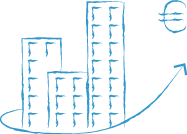
|
67 |
555 |
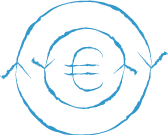
|
377 |
3135 |
Salzburg City & Region
Due to its splendid scenery, numerous historical places of interest and its Festival, Salzburg is one of the most beautiful and interesting cities in the world. Due to its magnificent Baroque old city, it is known as the “Rome of the North” and was declared a UNESCO world heritage site in 1996. The most famous citizen of Salzburg was W. A. Mozart, born in 1756.With around 150,000 inhabitants, Salzburg is Mozart’s city, a university city and a festival city.
It offers its student population a broad selection of leisure activities. Bicycle lanes and pedestrian zones with cafés and bars characterise the city’s streets. The cultural programme on offer encompasses classical music, contemporary art and an alternative scene. The region of Salzburg with its lake district and attractive winter sport opportunities also contribute to the high quality of life.
Infographics
President of Salzburg Regional Government
Dr. Wilfried Haslauer

Mayor of Salzburg
Dr. Heinz Schaden

Inhabitants - region
386.297

Inhabitants - city
147.825

Gross domestic product
€ 22.866 Mio.

Surface area
7.156km2

Per inhabitant
€ 42.800

Political districts
6

Employment positions
287.000

Municipalities
119

History
The timeline shows the different lines of development of the six institutions of higher education. The oldest institution dates back to 1622, the most recent institutions were founded in 2007.
University of Salzburg
-
1622
University was officially opened by Prince Archbishop Paris Lodron
-
1810
University was dissolved after the incorporation of Salzburg to Bavaria
-
1962
Salzburg University was rebuilt with a Catholic Theology Faculty and a Philosophy Faculty
-
1975
University was divided into Faculties of Catholic Theology, Law, Humanities, Natural Sciences and Medicine
-
1999
University Restructuring Law from 1993 was enforced
-
2004
New organisational chart implemented according to the University Law
-
2011
Unipark was added
-
2012
50th anniversary
Mozarteum University Salzburg
-
1841
Salzburg Cathedral Music Association was founded as a music school
-
1914
Became a conservatory
-
1953
Became an academy
-
1961
Orff Institute was founded
-
1970
Became a college of music and performing arts
-
1998
Became the Salzburg Mozarteum University
-
2006
Mozarteum building was opened at Mirabellplatz 1
-
2007
KunstWerk (Work of Art) was opened at Alpenstraße 75
-
2007
“Theatrum” in Paris-Lodron-Strasse: departments of drama, stage directing and stage design
-
2010
“Theatre im Kunstquartier”
-
2013
Opening of Thomas Bernhard Institute – Acting/stage direction department
Salzburg University of Applied Sciences
-
1995
First FH courses started: “Telecommunication Technology and Systems” and “Wood Engineering and Forestry“
-
2003
Kuchl Campus was opened
-
2004
Awarded status as “University of Applied Sciences”
-
2005
The FH degree courses of the three Salzburg facilities were joined under one roof as the Salzburg University of Applied Sciences
-
2005
Urstein Campus was opened
-
2006
First degree programmes of health studies started
-
2009
Study programmes changed to the two-tier Bachelor/Master degree system
-
2012
FH Salzburg is awarded a Josef Ressel Centre
Paracelsus Medical University Salzburg
-
2002
Accreditation received
-
2003
University was opened; cooperation agreement with the Mayo Medical School
-
2004
Research office, Institute of Anatomy and Musculoskeletal Research, Institute of Physiology and Pathophysiology were founded
-
2006
Institute of General Practice, Family Medicine and Preventative Medicine was founded
-
2007
Institute of Pharmacology and Toxicology, Institute of Nursing Sciences, Institute of Advanced Radiation Technologies (radART) were founded and the Hansjörg Wyss house was opened
-
2008
Research Institute of Regenerative Molecular Medicine was founded
-
2009
Salzburg Medical Simulation Centre was opened
-
2011
Institute of Tendon and Bone Regeneration was founded
-
2012
Groundbreaking ceremony of the new teaching and research building with a Centre for Spinal Cord and Tissue Regeneration
-
2013
“Haus C” teaching and research building was opened
-
2014
Second PMU location established in Nürnberg
-
2014
Human Medicine courses start in Nürnberg
University of Education Salzburg
-
2007
Teacher Training Academy, Teacher Training Institute, Practice Primary School and Practice High School were consolidated into the University of Education
-
2008
The INSEL/Youth centre became a daily practice location
-
2011
The Practice High School became the New Practice Middle School
-
2015
Start of Master of Education Program (M.Ed.) for teachers for primary schools
Private University Seeburg Castle
-
2007
Successful completion of the accreditation process and official recognition of the Schloss Seeburg Private University
-
2008
Academic services started with the university course “General Management” (MBA); Bachelor and Master programmes started
-
2013
iim – Institute for Innovation Management is established
-
2014
Successful re-accreditation of the Private University Seeburg Castle
Present and Future Joint Cooperation
There are already several existing cooperation projects between member institutions of the Salzburg Further Education Conference (e.g. the children’s university and teaching training programmes, welcome reception for international students). These should be expanded in the future, especially in the areas of study programmes and teaching, research, administration, events and public relations. In this way resources can be combined and synergies exploited.
Future Cooperation Projects:
- Recognition of academic credits
- Research funding – agreement and addition of different proposals
- Further Education in Salzburg – creation of a regional map showing each study opportunity
- Joint semester opening
- Series of “Welcome to Salzburg” events
- Open days
- Idea competition– call for joint project ideas
- Joint Erasmus welcome ceremony – joint International Week
- Salzburg University Press
- Joint LLL (Life Long Learning) activities
- International work experience placements
Existing Cooperation Projects
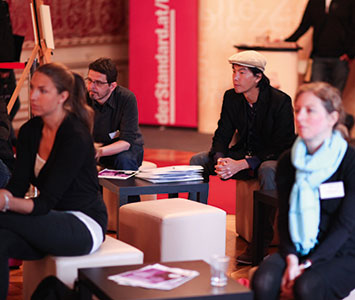
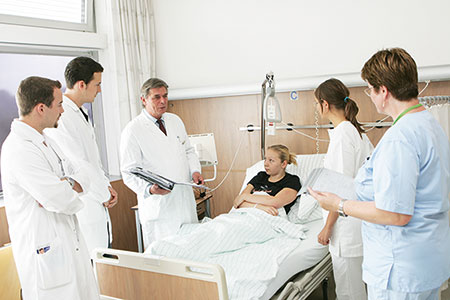
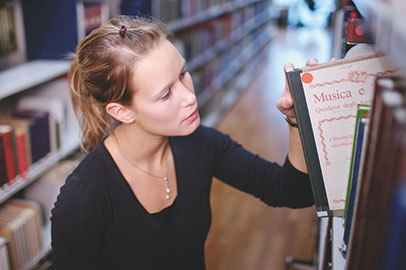

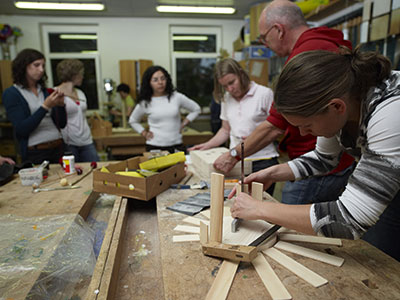
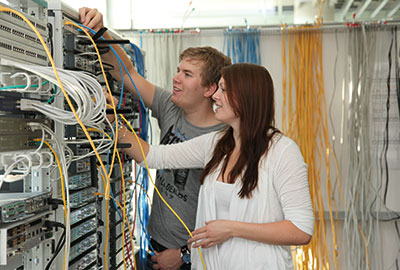
Cooperation Projects & International Partnerships
The higher education institutions in Salzburg cooperate with around 1,000 partners, half of which are located in the EU, a quarter of which are outside of the EU, whilst a quarter is based in Austria. The main focus of these international partnerships is to form student exchange agreements with other education centres. Business cooperation projects and other partnerships make up a smaller yet equally as important part.
ERASMUS Mobility Scheme
Students from different European institutions of higher education have the possibility to spend an exchange semester in Salzburg within the ERASMUS framework, whilst students from Salzburg can study abroad. At present, over 400 partners participate in the Erasmus Programme in over 20 countries in the whole of Europe. The interest of teachers, students and also administrative staff in the European exchange programme is constantly increasing whilst the amount of mobility flows, especially in teaching is continuously growing.
Cooperations 2013
| Cooperations 2013 |  |
 |
 |
 |
|---|---|---|---|---|
| University | 58 | 572 | 156 | 786 |
| Extramural R&D-Facilities | 28 | 45 | 11 | 84 |
| Companies | 73 | 22 | 5 | 100 |
| Schools | 146 | 26 | 3 | 175 |
| Other | 60 | 52 | 5 | 117 |
| Total | 365 | 717 | 180 | 1262 |
Cooperation Projects & Global Network
Cooperation projects link Salzburg’s higher education institutions to every continent in the world.

University of Salzburg

What does the university stand for?
Salzburg University’s four faculties offer a wide range of educational and training courses. With the help of outstanding qualitative and research-led teaching, around 17,000 students are currently being trained in 32 university departments. As the largest further education institution in the city and region of Salzburg, the university ensures excellent education as well as research achievements of the highest standard.
How is it different from the other institutions?
As a higher education institution in Salzburg, the PLUS is unique thanks to its history dating back to the Baroque era. Through its wide and up-to-date range of subjects (34 fields of study and 40 university courses), its School of Education and its Senior Citizens’ University, the PLUS has reached significant milestones and put important ideas into motion. The university excels through a tight network of national and international contacts.
What would Salzburg miss if this institution did not exist?
With around 2,600 employees, the university is one of the largest employers in the region and makes a substantial contribution to Salzburg’s economic standing. With its numerous university buildings in the old city and the Nonntal Unipark, the university is architecturally speaking an essential part of the city. In the city’s student and cultural life, the university is now an important place of congress and intellectual exchange.
Mozarteum University Salzburg

What does the institution stand for? What are its goals and functions?
The Mozarteum University is conceived as an artistic, educational and scientific research facility as well as the meeting place for artists and ideas. Its purpose is to make a substantial contribution in the way of creation and interpretation as well as in the reflection and mediation of art and artistic practices. Its central concern is the optimal support of its student body on an individual level.
What role does this institution carry out in the regional and international field?
The Mozarteum University today as an artistic, pedagogical and scientific centre has an important regional as well as international role and function. In international exchanges between teachers and students, scholarship programmes, exchange concerts and collective projects, the Mozarteum University builds up lasting relationships to music and art colleges all over the world.
What would Salzburg miss if this institution did not exist?
Besides its traditional role as a training institution of excellence, the Mozarteum University has positioned itself fully as an arts provider. The Mozarteum University contributes to Salzburg’s cultural life with numerous performances by students and teachers. Besides offering intensive studies in a musical environment, it is the starting point for networking for later professional careers.
Salzburg University of Applied Sciences

What does the institution stand for?
The Salzburg University of Applied Science (SUAS) boasts an interdisciplinary approach to teaching and research, up-to-date course content in four disciplines of Engineering, Business and Social Sciences, Design, Media & Arts and Health Studies. Further up-to-date course content as well as excellent, hands-on cooperation with businesses. It also has an optimal student mentoring programme and outstanding infrastructure. Studying at the SUAS means a high success rate, a low drop-out quota, clear course structure and the best job opportunities.
What are its goals and functions?
This university of applied sciences strives to direct its teaching to market and target-groups, assuring high quality teaching through regular evaluations of its facilities and study programmes. It focuses not only on applied research and development, but also on its international image as well as the development of further areas of study for the future.
What would Salzburg miss if this institution did not exist?
It would not have the 6,300 graduates that have so far become qualified employee and successful business partners, strengthening Salzburg’s economy and would lack an innovative research and development partner for local services as well as for international companies. A special feature of the Salzburg University of Applied Science is its unique ownership structure: The Salzburg Chamber of Commerce and the Chamber of Employment are both equal partners.
Paracelsus Medical University Salzburg

What does the institution stand for?
The Paracelsus Private Medical University is one of the leading institutions in the teaching of human medicine and health sciences as well as in biomedical research. With standards of the highest quality, it’s unique curriculum in the German language, the intensive exchange of skills through top-class networks as well as its strong international image make the university extremely attractive to students, teachers and researchers.
What are its goals and functions?
Students in Salzburg and Nürnberg are trained at the University Institutes, the Salzburg University clinic as well as at selected teaching hospitals and practices to become competent and highly qualified doctors of human medicine and healthcare professionals. Its main focus is teaching and research as well as the promotion of excellent client care.
How is it different from the other institutions?
The private status of the Paracelsus University allows the development of new strategies and models as well as the use of the most modern teaching and learning methods. Through the effective structuring of study programmes and individual mentoring in small groups, periods of inactivity are avoided and medicine courses can be completed in a shorter period of only five years.
University of Education Salzburg

What does the institution stand for?
The Salzburg University of Education (PHS) trains teachers for primary schools, new middle schools, special schools, polytechnics, vocational colleges and the technical commercial areas of BMHS colleges. It also offers the possibility to train in leisure education. Within the scope of further education and advanced training, around 20,000 teachers qualify each year to teach in all types of schools.
What are its goals and functions?
The main goal of the PH is the continual improvement of teaching quality through the constant development of teaching and learning culture as well as extensive research related to the professional field. Practical in-school studies form a central element of this as well as diversity-centred education and social learning.
How could the facility be described in three sentences?
The central concerns of the PHS are to provide professional vocational and advanced training and further education for teachers. It also continuously strives to improve teaching standards and to provide new stimuli for the on-going development of teaching and learning culture through occupational research and supervised teaching practice sessions. To fulfil this goal, the PHS commits itself to a number of international, national and regional collaboration projects.
Private University Seeburg Castle

What does the institution stand for?
The Private University of Seeburg Castle offers with its semi-virtual concept a unique study experience. It combines the freedom and flexibility of an innovative internet-based distance study programme with personal mentoring and classroom teaching in small groups.
What are its goals and functions?
At the Private University of Seeburg Castle, students are provided with the ideal conditions to develop personal, social, specialised and methodological skills and integrate them into their own personal skill set. This hands-on, science-based approach to the study of Business Management, Business Psychology and Sport and Event Management therefore ensures that all acquired knowledge is put into direct practice.
How is it different from the other institutions?
The semi-virtual study concept, which includes three class-taught sessions per semester, allows the students to organise their time optimally so that they can gain work experience or follow a career path whilst they study. The excellent mentoring programme with individual study coaching is a successful alternative to the approach used by public universities.
Academic Studies & Teaching
Since the transfer to the European study system, an academic career begins with a bachelor degree, which can be followed by a specialised master degree. Other types of study are diploma courses and teacher training degrees. These degree courses qualify students to study a doctoral qualification in the respective area of scientific expertise. As a place of higher education, Salzburg offers courses in the study areas of catholic theology, social and cultural sciences, natural sciences, technology, economics, medicine and numerous artistic subjects. The most part of degree courses are classroom-based, and also partly with online support.
Certain subjects are available as distance learning courses. Information on each course is available on the website of the respective higher education institution, as well as at different information events such as open days and training and education fairs.
Higher education courses Search
Infographics
| Students Winter Semester 2013/14 |

14.035 60 % |

9.333 40 % |
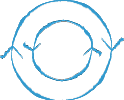
23.368 |
| Student Nationality: Winter Semester 2013/14 |
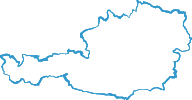
15.633 67 % |

7.735 33 % |

23.368 |
| Total Graduates: Year of study 2012/13 |

2.287 65 % |

1.225 35 % |

3.512 |
Overview of higher education courses on offer in Salzburg:
Bachelor 84
Bachelor degree courses last six to seven semesters and lead to a bachelor degree qualification, enabling entry into many professions (also abroad).
Master Degrees 93
Master degree courses build on Bachelor degree courses and last three to four semesters. They lead to a master degree or graduate engineer qualification.
Diploma (degree) courses 7
Diploma courses usually last eight to ten semesters and lead to a master diploma qualification. A diploma course consists of two or three study sections, each of which is completed with a diploma exam.
Teaching subjects 34
plus the subjects on offer at the University of Education
Teacher training degree courses last from six to nine semesters according to the type of school. In each case, two teaching subjects are combined in the teacher training programme. Pedagogical training and subject-related didactic training are included in the curriculum as well as an introduction to in-school practical training.
Doktorate 9
Doctoral programmes concentrate on developing the capacity for independent scientific work and last 4 to 6 semesters. This course is completed with the academic qualification of Doctorate / PhD. As part of the doctoral programme, students must complete a dissertation (thesis). The dissertation must be defended within the scope of a rigorous examination.
University courses for graduates and other university study programmes 131
University courses provide advanced and vocational training and cater predominantly towards specific professions. Graduation with an academic job title or master degree qualification is possible. University courses last between one and six semesters.
Higher Education Courses on offer
Here you will find all the study programs of the six institutions of higher education in Salzburg at a glance. By using the search function, you can filter the search results by “institution”, “area of expertise” and “keywords”.
Search
institution if higher education
subject group
orCore Research Areas

Centre for Cognitive Neuroscience
Allergy-Cancer-BioNano Research Centre
Salzburg Centre of European Union Studies

History of musical reception and interpretation
Research platform “Musical History of Salzburg” Musical Education Department
Core research area in the promotion of young academics
Research and Education

Engineering
Business and Social Sciences
Design, Media & Arts
Health Studies
Center for Secure Energy Informatics

Neurosciences
Oncology, Immunology and Allergology
Musculoskeletal diseases
Metabolic diseases

Teaching developments
Research into teaching practice
Political education and social learning
Diversity Education

Economic Decision Making
Innovation and Creativity
Knowledge and Competence Management





